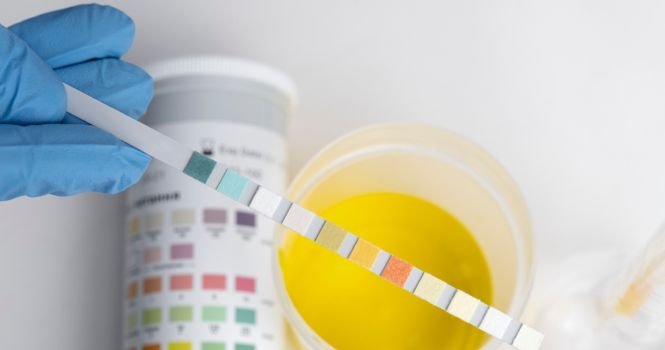The presence of glucose in urine, also known as glucosuria, is an important indicator that your body isn’t functioning as it should.
Ordinarily, your kidneys play a crucial role in maintaining the body’s glucose balance by reabsorbing all glucose back into the bloodstream.
However, in certain circumstances, glucose can ‘leak’ into the urine.
Let’s explore the causes and implications of glucosuria.
The Role of Kidneys in Glucose Management
Kidneys are the primary organ responsible for waste elimination and fluid balance in the body. They filter blood, removing toxins and waste materials and sending them out through urine.
Simultaneously, they reabsorb necessary substances like glucose and return them to the blood.
During the filtration process, the kidneys may allow glucose to enter the urine temporarily. However, this glucose is usually reabsorbed back into the bloodstream.
The renal threshold for glucose is generally around 180 mg/dl. Any blood sugar level below this threshold should not lead to glucose appearing in urine.
Causes of Glucose in Urine
The presence of glucose in urine is a sign that your body isn’t managing glucose correctly. Here are some possible causes:
1. Diabetes:
The most common cause of glucosuria is uncontrolled diabetes mellitus, a condition characterized by high blood sugar levels. In people with diabetes, the kidneys might not be able to reabsorb all the glucose because of the excessive amounts present, leading to glucose ‘spilling over’ into the urine.
2. Pregnancy:
During pregnancy, the body’s hormonal changes can cause a temporary decrease in the renal threshold for glucose, causing it to appear in the urine.
3. Renal glycosuria:
This is a rare condition where the kidneys themselves have a lower threshold for glucose. Even though blood glucose levels are normal, glucose still ends up in the urine because the kidneys do not reabsorb it efficiently.
4. Other medical conditions:
Conditions like hyperthyroidism, liver disease, and Cushing’s syndrome can also cause glucose to appear in urine.
Diagnosing and Treating Glucose in Urine
If a urine test detects glucose in your urine, your healthcare provider will likely conduct further tests to understand the underlying cause.
These tests may include blood tests to assess your blood glucose levels and potentially a glucose tolerance test to examine how your body handles a glucose load.
The treatment for glucosuria depends on the underlying cause. If diabetes is the cause, managing your blood sugar levels through medication, diet, and exercise will often resolve the issue.
If pregnancy is the cause, no treatment is usually required, as the condition tends to resolve itself after delivery.
Note:
Glucosuria, is often used to refer specifically to the presence of glucose in the urine, while Glycosuria, can refer to the presence of any sugar in the urine, not just glucose. However, because glucose is by far the most common sugar to appear in urine, the terms are often used interchangeably in a clinical setting.
Conclusion
Glucose in urine is a signal that your body’s glucose management system is not balanced. While it’s most often associated with diabetes, many other conditions can lead to glucosuria.
Understanding the cause is crucial for targeted and effective treatment.
If you suspect you have glucosuria, consult a healthcare provider to discuss your symptoms and potential treatment strategies. Remember, early detection can be key to preventing potential complications.













